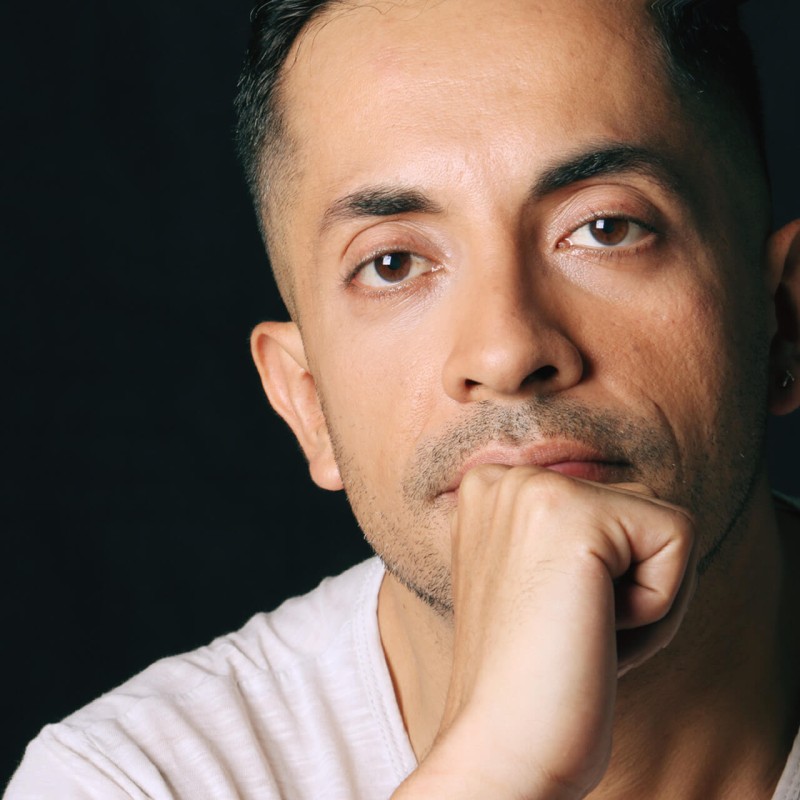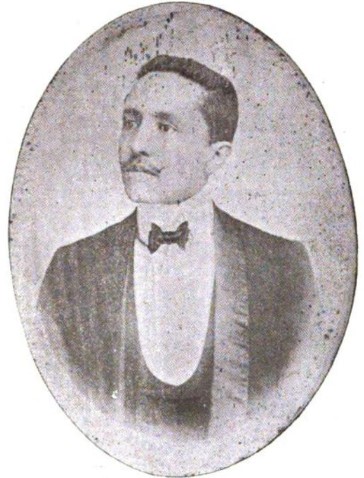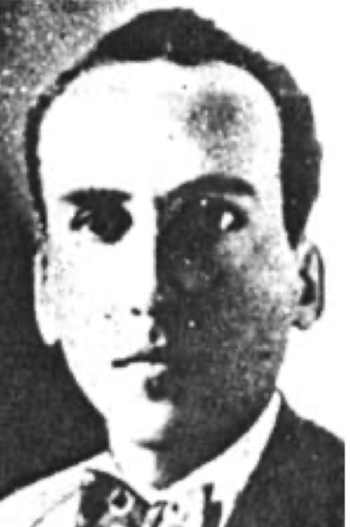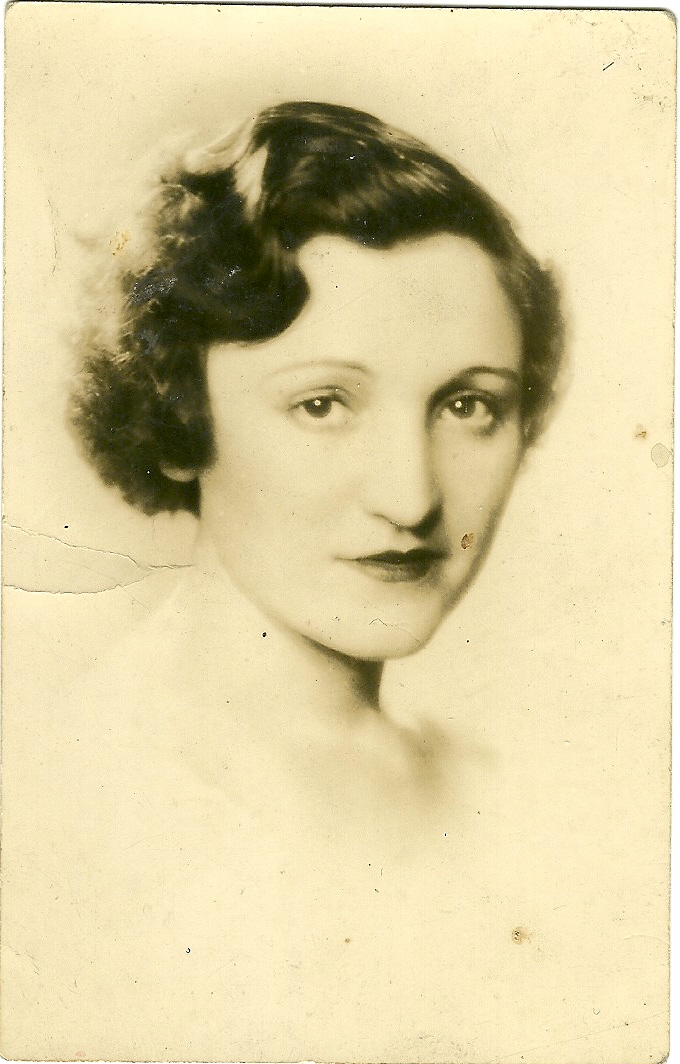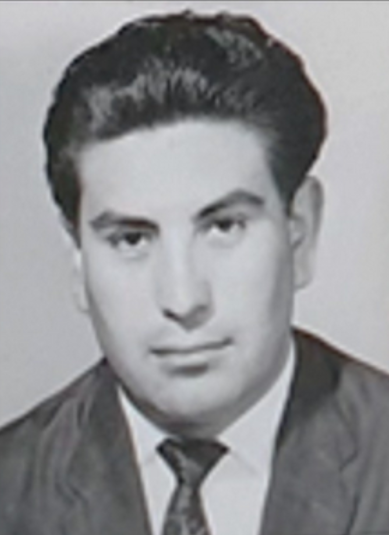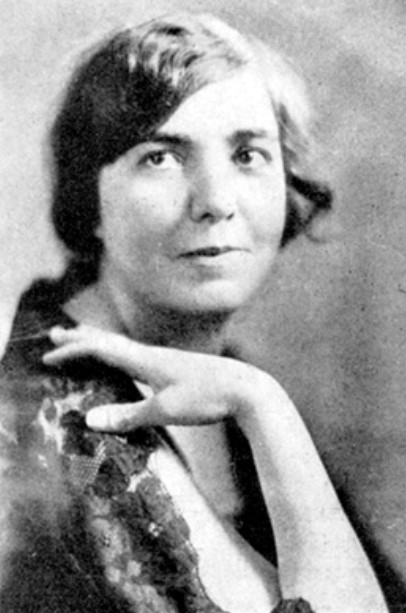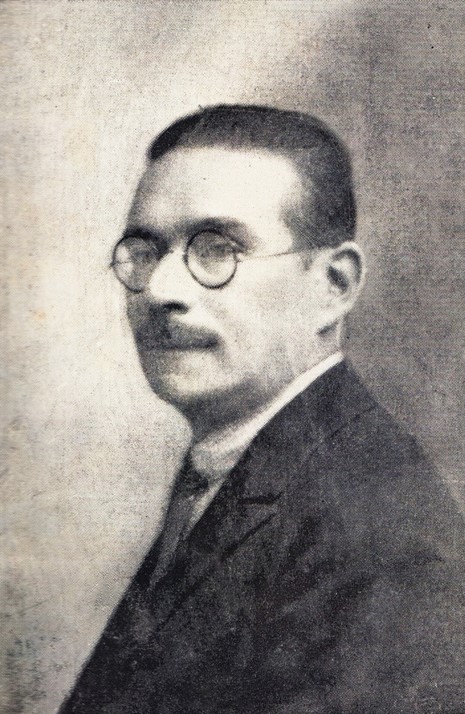Diego Falconí Trávez (Quito, 1979) is an Ecuadorian lawyer, scholar, and writer specializing in human rights, literary theory, and comparative literature. He is an associate professor at the Universitat Autònoma de Barcelona and a researcher at the Universidad San Francisco de Quito, where he also directs the legal journal Iuris Dictio. His research explores gender studies, queer theory, Andean literature, and the intersections of law and literature. Falconí is best known for his book De las cenizas al texto: Literaturas andinas de las disidencias sexuales en el siglo XX, which won the prestigious Casa de las Américas Prize in 2016, and for his advocacy for decolonial and dissident identities in cultural and academic discourse.
Continue reading “Diego Falconí Trávez”Posts
Alejandro Andrade Coello
Alejandro Andrade Coello (Quito, 1875 – Quito, November 13, 1943) was an Ecuadorian writer, journalist, and educator renowned for his contributions to literature and pedagogy. A longtime professor of literature at the Colegio Nacional Mejía in Quito, he authored over 50 works, including Nociones de Literatura General (1914), El Ecuador Intelectual (1919), Rodó (1917), and Motivos Nacionales (1927), as well as critical essays and biographies of prominent figures. He was a member of international literary institutions, such as the Academia Nacional de Artes y Letras in Cuba, and a vocal advocate for individualized education. His legacy endures as a pioneer in Ecuadorian intellectual and cultural history.
Continue reading “Alejandro Andrade Coello”Dario Demetrio Ruiz
Dario Demetrio Ruiz C. (1897–1980) was an Ecuadorian journalist, poet, and customs manager. In the 1930s, he founded two newspapers in Guayaquil: El Derecho and El Espectador. He also worked as a writer for other prominent newspapers, including El Universo and El Telégrafo. Ruiz Cárdenas published several of his poems in various publications throughout his life, but a collection of his works has never been compiled into a book.
Continue reading “Dario Demetrio Ruiz”Publio A. Falconí
Publio Antonio Falconí Pazmiño (Chone, January 21, 1906 – Guayaquil, July 1991) was an Ecuadorian poet, journalist, educator, and public servant. A member of the influential “Generación Literaria Argos,” he contributed significantly to the cultural and literary renaissance of Portoviejo in the 1920s. Known for his journalistic work with El Universo and Diario Manabita, where he wrote under the pseudonym “Alpas,” he also authored two unpublished poetry collections, El cántaro roto and La ruta azul. His lyrics for the pasillo “Al morir de las tardes” remain a hallmark of Ecuadorian music. Beyond literature, he served as a professor, rector, municipal leader, and advocate for retirees, earning national and international recognition for his contributions to culture, education, and public service.
Continue reading “Publio A. Falconí”The One and Only Love: A Short Story by Luis Aníbal Sánchez
Translated to English by Richard Gabela, completed on November 16, 2024, from the original work “El amor único” by Luis Aníbal Sánchez (1902–1922) of Ecuador. I have translated the title of the story as “The One and Only Love.” The story takes place in rural Ecuador, where social class distinctions between landowners (“masters”) and laborers were very pronounced in the early 20th century (the story is dated 1921). This post includes my English translation, followed by a glossary, a translator’s note, and the original Spanish version of the story.
Continue reading “The One and Only Love: A Short Story by Luis Aníbal Sánchez”Galo Ochoa
Galo Ochoa was an Ecuadorian poet and author. He wrote Rebeldía (1935), a socially conscious poetry collection described in its prologue by Joaquín Gallegos Lara—himself only 26 at the time—as the work of a “strikingly young” poet and a “student with concerns,” suggesting Ochoa was likely in his teens or early twenties. Later, he authored Geografía Económica (1946), a study of Ecuador’s economic geography.
Continue reading “Galo Ochoa”Luis F. Madera
Luis Francisco Madera Negrete (Ibarra, Ecuador, February 25, 1883 – Quito, Ecuador, November 23, 1987) was a chronicler, poet, historian, and jurist who served as President of the Supreme Court of Ecuador in 1952. Known for his clarity of expression and dedication to documenting the history of his hometown, Ibarra, he authored works such as Impresiones (1919), a book of poetry, and Ibarra y el terremoto de 1868 (1918), a detailed account of the city’s recovery from the 1868 earthquake. His historical writings preserved key aspects of Ecuadorian culture and journalism, including Periódicos ibarreños (1927), which chronicled 47 local newspapers. A devoted chronicler, his legacy endures as a vital contributor to Ecuador’s cultural and historical record.
Continue reading “Luis F. Madera”Efraín Fabara Ch.
Efraín Fabara Ch. was an early 20th-century Ecuadorian poet who published his only known collection, “Parque Infantil” (Children’s Park), in Quito in 1938 through Editorial Labor. The book, subtitled “Viejos y Nuevos Alejandrinos” (Old and New Alexandrines), demonstrates his mastery of the alexandrine verse form while exploring themes ranging from cosmic and universal concerns to intimate portraits of individuals, urban landscapes, and cultural identity. In his prologue, Fabara acknowledges writing poetry in what he calls an “anti-lyrical hour” for humanity, defending the personal necessity of poetic expression despite the era’s hostility to verse. Several of his poems, including “Internacional” and “Buenos días, oh Sol, galán joven del mar” show a direct engagement with Quito’s landscape and character.
Continue reading “Efraín Fabara Ch.”Carlos Dousdebés
Carlos Dousdebés (1902-1958) was an Ecuadorian poet whose only published collection, Surtidores blancos (White Fountains), was released in Quito in 1930 by Editorial Bolívar and edited by Alfonso and José Rumazo González. His literary career spanned from at least 1920, with his early poem “Mane Thecel Phares,” until 1958, marked by his final dated poem written on Easter Sunday of that year. Though his later work remained largely unpublished, scattered between Guayaquil and Quito, his manuscripts show a meticulous revision process with multiple versions of each poem. His writing focused on two main themes: religious contemplation and a gentle form of love poetry. While most of his work explored intimate themes and natural imagery, his brief time in New York in 1930 produced two poems engaging with urban modernity, particularly “La Nueva Primavera.” The Ecuadorian poet and critic Augusto Arias noted that Dousdebés’s soul remained “always in flight, with tragic persistence, irremediably ill” until his death.
Continue reading “Carlos Dousdebés”Corina del Parral Durán
Corina del Parral Durán (Bahía Blanca, Argentina, January 25, 1905 – Buenos Aires, Argentina, February 8, 1979) was a celebrated Argentine composer, pianist, poet, and social advocate who served as the First Lady of Ecuador during her marriage to President José María Velasco Ibarra. Known for her profound contributions to Ecuadorian society, she founded the Patronato Nacional del Niño, a pioneering child welfare organization that set a standard for future social programs. Del Parral also created popular Ecuadorian musical compositions and wrote poetry under the pseudonym “Alma Helios,” leaving a legacy in the arts and social welfare that continues to be honored in Ecuador and Argentina.
Continue reading “Corina del Parral Durán”Lorena Salazar Suquilanda
Lorena Salazar Suquilanda (Quito, Ecuador, May 6, 1983) is a poet, clinical psychologist, and human rights advocate whose work interweaves creative expression with a commitment to educational inclusion. Known for her poetry, which explores themes of resilience and human complexity, she has contributed to notable anthologies like Con Ciertas Palabras and 10 Orillas and has performed at international poetry festivals such as Casa Bukowski’s “Mujeres.” Alongside her literary endeavors, Salazar has served as a university lecturer and consultant specializing in inclusive education for vulnerable populations, with a distinguished record of roles with UNESCO, Ecuador’s Ministry of Education, and various human rights organizations.
Continue reading “Lorena Salazar Suquilanda”Guido Mera Vera
Guido Mera Vera (Tixán, January 25, 1934 – Riobamba, July 14, 2003) was an Ecuadorian writer, poet, and physician, known for his prolific literary work spanning poetry, novels, essays, and short stories. Educated in medicine at the University of Guayaquil and institutions in the United States, he balanced a career in medical research with a passionate commitment to literature, producing eleven published books including Góndolas de Espuma, El Minuto Eterno y la Envoltura del Ser, and Murallas de Cristal. His works, marked by philosophical skepticism and social reflection, earned him national acclaim, and he won the first prize in the 1958 Juegos Florales of the University of Guayaquil. Celebrated as a cultural patron, Mera Vera also served as a key member of the Casa de la Cultura Ecuatoriana, leaving an enduring legacy in Ecuadorian literature and intellectual thought.
Continue reading “Guido Mera Vera”César Espíndola Pino
César Espíndola Pino (Tulcán, 1917–Unknown) was an Ecuadorian author and lawyer. Born in Tulcán, he trained in law and served as Deputy Secretary in Ecuador’s Ministry of Social Welfare, which informed his professional interest in labor and legal issues. His novel Fuego en la ciudad (1941) examines the struggles of a middle-class man facing economic decline. His poetry collection Guijarros (1942) includes micropoems that reflect a minimalist style and themes of nature and impermanence, while Lo que el poeta me dijo (1951) consists of prose poems exploring solitude and introspection. Espíndola Pino also published El caso de “Pusuquí Grande” y anexas (1965), a legal analysis of land and labor disputes in Ecuador. He was associated with cultural institutions such as the Ateneo Ecuatoriano and the Casa de la Cultura Ecuatoriana.
Continue reading “César Espíndola Pino”Muna Lee
Muna Lee (1895–1965) was an American poet, translator, and activist whose work significantly advanced Pan-American cultural exchange. Known for her lyrical poetry and commitment to women’s rights, Lee became a prominent translator of Latin American literature, notably introducing Ecuadorian poet Jorge Carrera Andrade to English-speaking audiences with her acclaimed translation of Secret Country (1946). Her marriage to Puerto Rican poet and later governor Luis Muñoz Marín drew her into Puerto Rican cultural life, where she also served as director of International Relations at the University of Puerto Rico. Later, as a specialist in inter-American cultural affairs for the U.S. State Department, she championed artistic exchange across the Americas. Lee’s legacy endures in her translations and her efforts to foster a unified cultural identity throughout the Western Hemisphere.
Continue reading “Muna Lee”Manuel María Sánchez
Manuel María Sánchez Baquero (Quito, December 19, 1879 – July 28, 1935) was an Ecuadorian lawyer, educator, poet, and journalist who served as Minister of Public Instruction and rector of Instituto Nacional Mejía, where he championed educational reform. His poetry, including “Patria,” reflects themes of patriotism and social justice. A committed journalist, he co-founded the anti-government publications La Prensa and La Constitución. His legacy in Ecuadorian education, literature, and national identity endures, with numerous schools and public spaces named in his honor. In 1938, three years after Sánchez’s death, his family published a collection of his poetry titled Poesías, which includes many of his significant works.
Continue reading “Manuel María Sánchez”